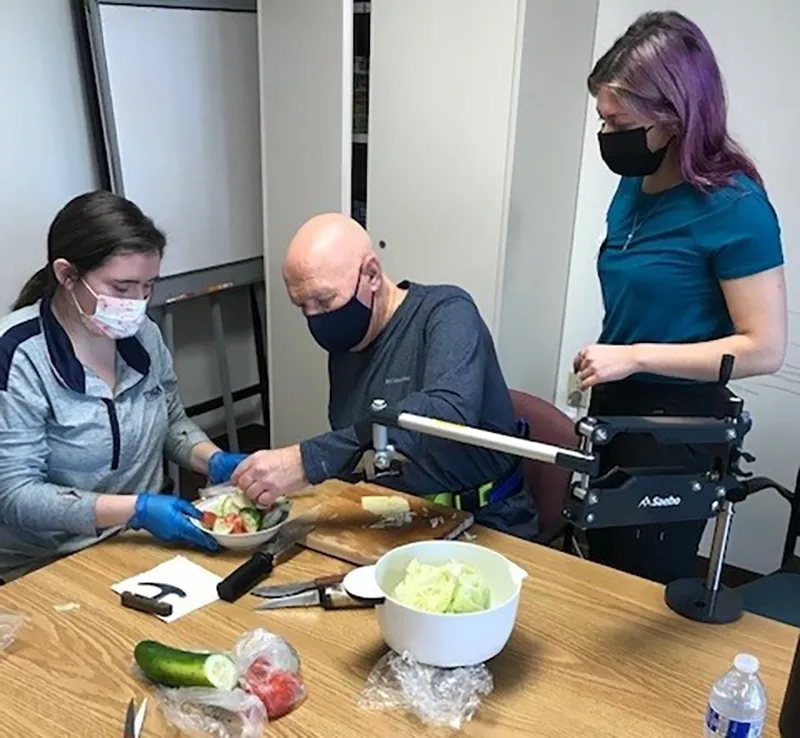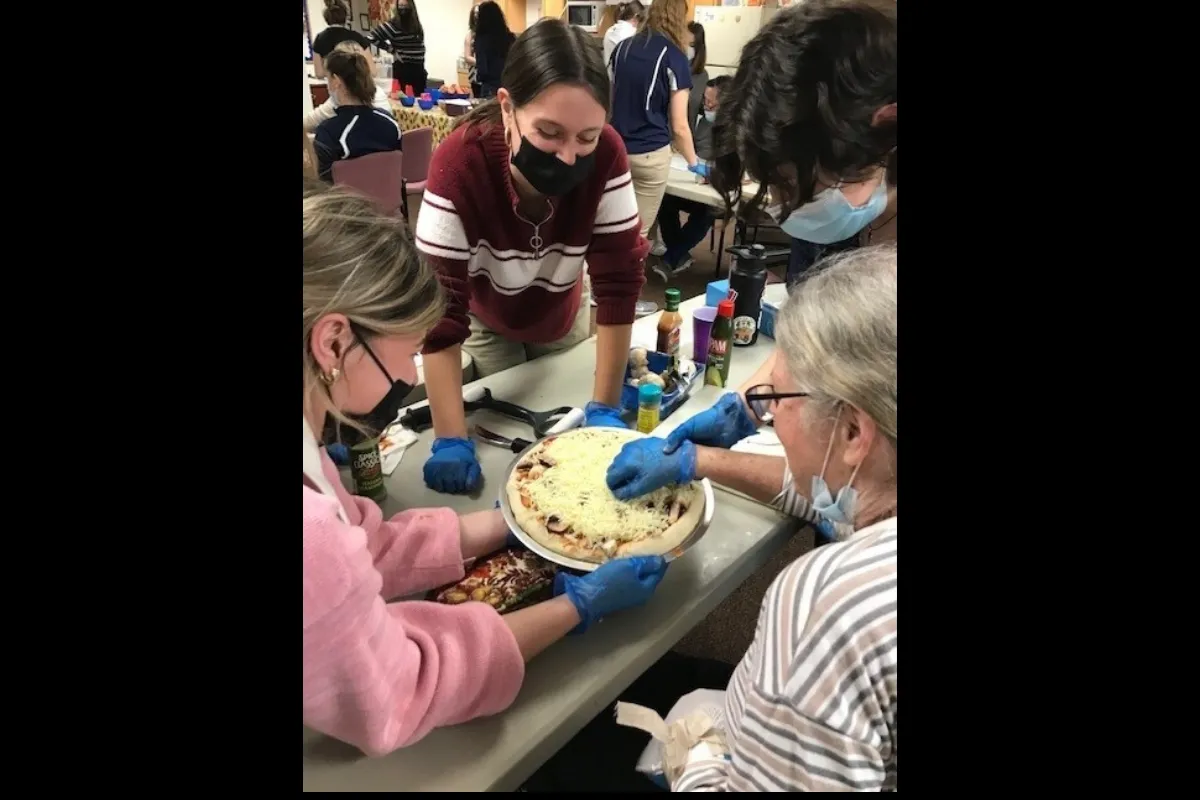The term “bootcamp” may conjure up thoughts of a grueling military-style workout, but Shannon L. Scott, assistant professor of occupational therapy at Ithaca College, has a different goal in mind: helping recovering stroke patients improve their quality of life.
That’s the goal of Scott’s upper-extremity modified Constraint-Induced Movement Therapy (CIMT) stroke bootcamp, a pilot program recently held at Longview, a senior living community in Ithaca.
CIMT is an intensive evidence-based treatment regimen for fostering upper extremity motor recovery for stroke survivors. Scott has an extensive clinical and research background in neurorehabilitation, particularly working with stroke patients. During her career as a neuro rehab consultant, she learned about the impact it had on patients and their rehab process.

